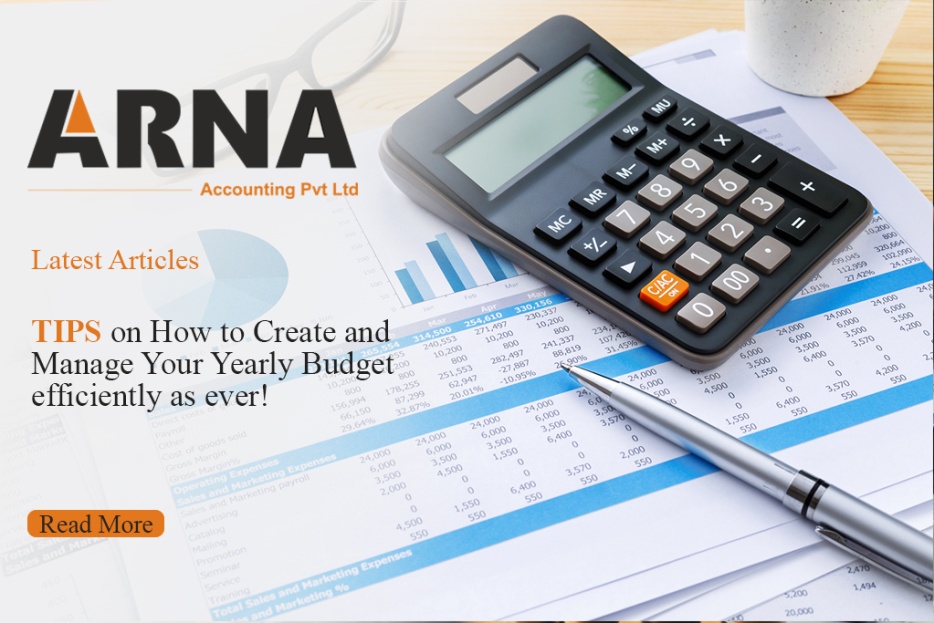Each company, no matter how big or small, needs a budget. One of the most crucial financial instruments, it can help you stay on track to accomplish your business objectives. Many businesses struggle because they lack experience with budgeting. Making the most of your budget can be difficult; alternatively, they could change their viewpoint regarding their financial management.
Here are seven suggestions to make creating and maintaining your yearly budget less difficult.
Avoid using spreadsheets
Spreadsheets are incredibly useful, and ever since they became widely used more than 36 years ago, they have served as the standard format for presenting financial data. As a result, it could be said that presenting information using an Excel spreadsheet has become customary. But just because something is done in a traditional way doesn’t necessarily make it the best way.
You should refrain from presenting and sharing your budget using a spreadsheet for a variety of reasons.
It’s not the most effective method for displaying data because most people have trouble understanding spreadsheets unless they use them on a regular basis. They are not the best tool for use as a reference tool because for some people can even be intimidating.
Even though you can complete the task using a spreadsheet, it doesn’t necessarily mean that it is the greatest tool to use. Today, you can have a perfect document without having to manually update it thanks to tools that connect with your accounting system and are cloud-based for actual numbers. Think Again About Your Yearly Budget’s Purpose.
Many company owners and CEOs have long held a poor opinion of the budgeting process. That is as a result of their somewhat constrained viewpoint. Budgets are perceived as a restriction.
More than just a means of saving money
Cutting your operational costs is undoubtedly a practical and even necessary practise, and doing so is made much simpler by having a solid budget in place. Having said that, if you and your group view a budget as a tool for cost-cutting, you are ignoring a significant portion of its benefits.
Utilize your budget to investigate options.
Every business must operate within certain restrictions and bounds; it’s a necessary part of doing business. You must devise a strategy for moving forward with what your company is capable of doing at this time in order to achieve your goals. A budget turns into a very useful tool during this process of determining the next step because it gives you a precise framework within which to make your strategic decisions. In all other words, it gives you options while keeping you grounded.
Make Use of Your Finances as a Weapon to Maintain Focus on Long-Term Goals
Teams frequently struggle to relate to financial goals, which is one of the biggest problems they face. That is commonplace because many companies don’t take the time to educate their teams about the financial effects that their decisions have on the company as a whole.
Your budget may be the ideal tool for demonstrating to everyone how their actions have an impact and advance your long-term objectives.
Connect short-term costs to long-term objectives.
It’s a great way to show everyone how their actions affect not only the finances but also how your business achieves its objectives to take a detailed approach and link specific access to sufficient to your lengthy goals (or forecasts). Your team will be able to establish a clear connection between an expense and a goal that matters to them when the budget is divided into more manageable components.
Utilize Dashboards to Increase User Engagement
Managing the volume of information that is constantly being presented to us is one of the biggest challenges that we all face. and not just from discussions of the workplace. You’ll almost certainly receive a deluge of notifications and updates if you simply pick up your phone. Whether you like it or not, this uses a lot of bandwidth. This is why using financial dashboards to present information is so successful.
The top 3 advantages of using dashboards are as follows:
You can easily and quickly dive deep into the data with their help.
They assist you in monitoring KPIs and assessing the results of your strategic planning.
By helping you stay focused on what has the biggest impact on your organisation, they assist you in overcoming analysis paralysis.
Consistently keep up with your budget
One of the main objectives for every budget is for it to become a living document that can be referred to and accessed constantly, as was stated at the beginning of this article. Your organization’s culture must incorporate this. Here are some suggestions to help your team adopt this culture change quickly.
Decide on a review date: At the end of the year, don’t just check the budget retrospectively. Utilize it on a monthly or quarterly basis to assess performance and make adjustments.
Make up scenarios: Point out any potential equipment requirements or large manufacturer orders. decline anticipated? Look for areas where cash flow will be harmed.
Change the figures: Your budget is not protected by glass. Does a place require more funding? Deliver it there. spending excessively? Determine the cause.
Always be aware of your financial situation.
Budgets are much more than simply spreadsheets that you consult when you need to reduce expenses or that sit idle on a hard drive. One of the most important financial tools you can use to keep your entire team on task and make achieving the objectives you’ve set for your company realistic and time-bound is a budget.
It makes sense that creating and keeping a budget might seem like a time-consuming task, especially if your organisation is relatively new to this. Here’s where having the right tools at your disposal and working with a top-notch accounting service can turn creating and maintaining your budget from a time-consuming hassle into a resounding success.

